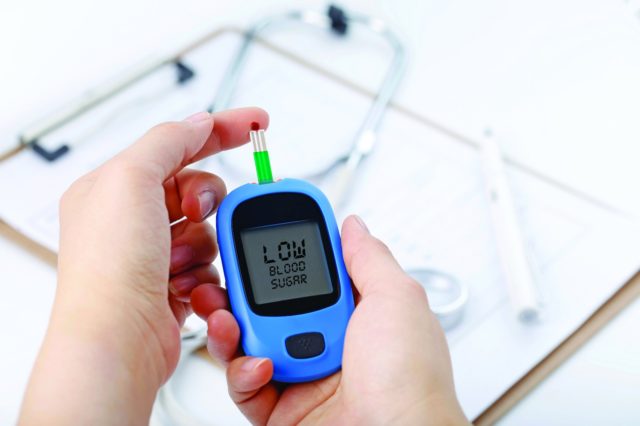Contrary to what one might think, diabetes is also seen in children and everything is shaken when a child is diabetic. First, the meanings of the words that matter in child’s life change. For example, sugar, the name of the favorite food, becomes a disease name, and “injection” which they have been afraid of since the cradle is tried to be shown loveable by everyone. They mobilize all their spiritual powers to defeat the accumulated injection fear and eventually accept the “insulin shot”. What will happen now? What will replace the pancreasic cells that worked silently and automatically regulated blood sugar in the past? For them, “Insulin means life”, for this reason we need to replace insulin hormone first. But insulin is not enough. In addition, information about “self-care” and “diabetes care awareness” is essential, which will replace the pancreas.
 Type 1 diabetes is a type of diabetes seen after 6 months and is often a “autoimmune” disease (immune system cells are damaged by pancreatic insulin-producing beta cells). It is more common in children and youths, they have to live insulin-dependent life, because pancreatic insulin-producing cells are damaged. Without insulin, glucose taken with food can not enter the cells, so it can not be used as a source of energy. In children with type 1 diabetes, symptoms such as drinking too much water, passing urine more often than usual, particularly at night (sometimes nocturnal enuresis) and most importantly weight loss occur suddenly, and if early diagnosis is not possible, “diabetic ketoacidosis” can happen which causes a coma as well. While the main problem with diabetes is related to glucose metabolism, protein and fat metabolism are also impaired in the course of the disease, and in the long term tiny blood vessels (capillaries) can be damaged.
Type 1 diabetes is a type of diabetes seen after 6 months and is often a “autoimmune” disease (immune system cells are damaged by pancreatic insulin-producing beta cells). It is more common in children and youths, they have to live insulin-dependent life, because pancreatic insulin-producing cells are damaged. Without insulin, glucose taken with food can not enter the cells, so it can not be used as a source of energy. In children with type 1 diabetes, symptoms such as drinking too much water, passing urine more often than usual, particularly at night (sometimes nocturnal enuresis) and most importantly weight loss occur suddenly, and if early diagnosis is not possible, “diabetic ketoacidosis” can happen which causes a coma as well. While the main problem with diabetes is related to glucose metabolism, protein and fat metabolism are also impaired in the course of the disease, and in the long term tiny blood vessels (capillaries) can be damaged.
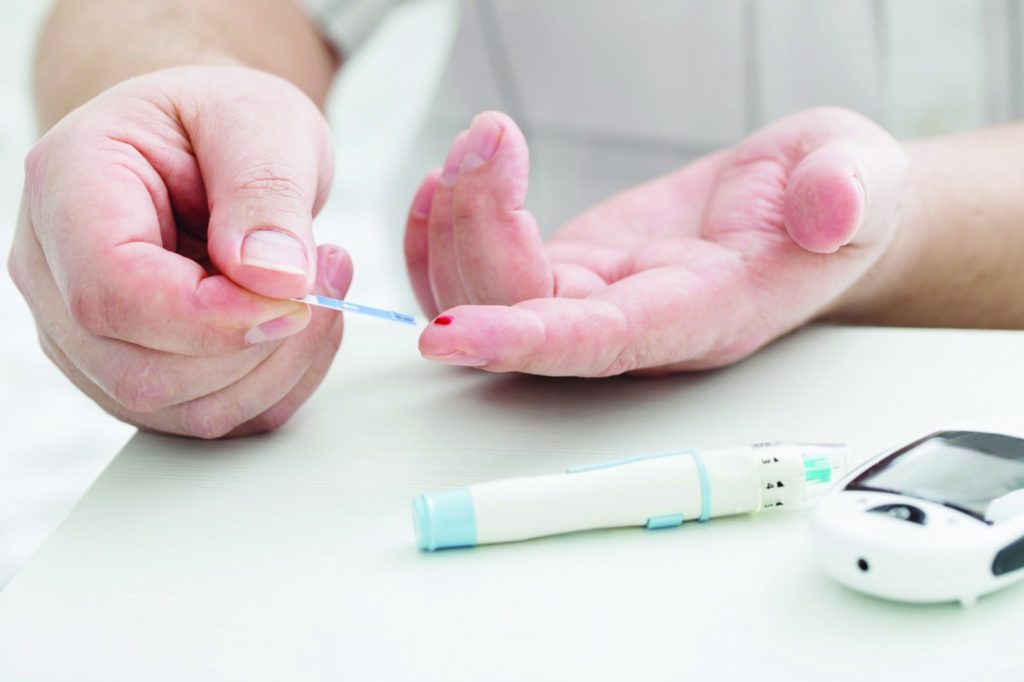
Unlike Type 2 diabetes, which is mostly caused by obesity, Type 1 diabetes is a rare disease. According to the World Diabetes Federation, 10% of the 400 million people in the world are Type 1 diabetics. In our country, there are about 7 million Type 2 diabetics, while about 50,000 people are Type 1 diabetics, and half of them are children. According to recent studies, there are around 20,000 diabetic children in our country and each year about 1,700 children are diagnosed Type 1 diabetes. No one thinks of diabetes especially in children because of its rarity and neither beleive that type 1 diabetics can lead a normal life like everyone else.
Society does not know Type 1 diabetes
Children either meet with diabetes at an early age when they do not know themselves or at the beginning of adolescence. Either way, they have a long time to grow up and they live this time with diabetes. They actually grow up with diabetes; diabetes affects their growths and vice versa. Even though they try to cope with the difficulties of growing up with diabetes, these children face many problems. Some children regret that they have to hide their diabetes for a long time from their surroundings, friends.
The main reason why children with diabetes live these difficulties is that the community don’t know type 1 diabetes. Those who meet a child with type 1 diabetes often for the first time look at them with pity and think that they will not live a normal life, will not be able to marry and have children like everyone else. If some children are known to be diabetic, they will not be able to get rid of the thought to be treated differently.
To cure Type 1 diabetes and get rid of insulin treatment is the greatest longing of all diabetics, but unfortunately today there is no such treatment yet ‘’to get rid of diabetes’’ and provide insulin secretion of pancreas as before. We say yet because research in this field is still going on. Type 1 diabetics and their families have difficulties in accepting diabetes as a lifelong disease, and they always expect a miracle. A miracle is not possible if Type 1 diabetes diagnosis is true. Despite these facts, there are some “hope mongers” who aver that they cure this disease with various plants, etc. abusing hopes of patients with diabetes. Be careful with these people and never give up the right treatment of diabetes by beleiving in these miraculous treatments.
Diabetes at School
Diabetic children spend most of their time in school and need support from their teachers for uninterrupted continuation of their treatments and participation in all school activities as their compeers. Today, the role of teachers in the treatment of diabetes is increasing. Teachers should be trained for diabetic emergencies as low blood sugar, etc. In addition, diabetic children should have snack meals, getting insulin should be made easier for them, and informative meetings should be held for a school life that is compatible with their friends. Nowadays diabetic children are experiencing many problems in schools. For example, teachers who do not know about tip 1 diabetes keep children away from school activities by saying ‘’we can’t take responsibility’’.
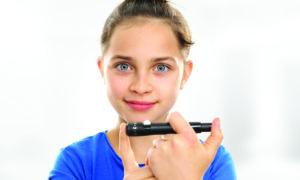
“Diabetes at School” program was initiated in November 2010 in cooperation with the Ministry of National Education and the Ministry of Health in order to solve the problems that diabetic children have in schools. The purpose of this program is to help early diagnosis of diabetes by strengthening school care of diabetic children and providing teachers and students with information about diabetes in children.
Diabetic children and youths can do all kind of physical exercises!
Today, children and youths with diabetes can live a normal life if they look well after themselves. The main point is accepting diabetes and doing what is necessary. Shevar Ercan, who lives in Diyarbakır and plays basketball at Giresun University Team, tells how she became ‘’friend’’ with her diabetes: ‘’I’m a basketball player. We were in Turkey Championship game held in Sivas. I had excessive weight loss and fatigue. I related it to the intense tempo at that moment, but as these complaints occured suddenly, we went to a hospital in Diyarbakir where I was diagnosed diabetes. There is a nurse there, Munevver. We are as friends. She explained me everything; that this disease will not hurt me, if I get along well with and accept it as a friend. I did not believe at first. Then when we were back home, I realized that when I really looked well after myself, it also responded well to me. Despite I attended the tournament immediately after the hospital and my blood sugar was not fully regulated, I performed well and got the award. I accepted my disease as a friend that would never leave me alone in my life and realized that there was nothing to stop me from doing other activities.’’
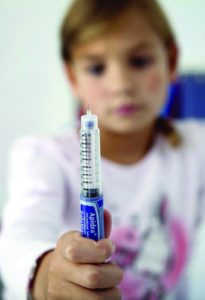 There are many successful athletes like Sheval among diabetics. One of them is Alper Saruhan with Type 1 diabetes, basketball player who attends “My Friend Diabetes Camp” in Iznik every year. Alper Saruhan makes simple, impressive and inspiring speeches for children in camps and boosts children’s energy by saying “the life of diabetic children deserves the title “Survivor’’(survives despite the difficult circumstances) more than the life on the TV programs, that your own life can teach you to be a successful athlete with diabetes, that diabetes can not be a barrier in reaching your goals, that all difficulties can be overcome if you become friends with diabetes”. Likewise, type 1 diabetic marathoner Gürkan Açıkgöz who comes to Iznik every year, explains the importance of sports in diabetic life as: “He controls diabetes better because he runs and runs better because controls diabetes well.”
There are many successful athletes like Sheval among diabetics. One of them is Alper Saruhan with Type 1 diabetes, basketball player who attends “My Friend Diabetes Camp” in Iznik every year. Alper Saruhan makes simple, impressive and inspiring speeches for children in camps and boosts children’s energy by saying “the life of diabetic children deserves the title “Survivor’’(survives despite the difficult circumstances) more than the life on the TV programs, that your own life can teach you to be a successful athlete with diabetes, that diabetes can not be a barrier in reaching your goals, that all difficulties can be overcome if you become friends with diabetes”. Likewise, type 1 diabetic marathoner Gürkan Açıkgöz who comes to Iznik every year, explains the importance of sports in diabetic life as: “He controls diabetes better because he runs and runs better because controls diabetes well.”
Let’s popularize diabetes camps!
We, a group of doctors, nutritionists, nurses, medical students dealing with diabetes in children, have been gathering around the Iznik lakeside with about 90 diabetic children every year since 1997. Diabetes camps offer unique opportunities for both diabetes education and diabetic children to live in peace and friendship with diabetes. Children with diabetes live together with experienced diabetic fellows, doctors, nurses, dietitians, psychologists and medical students for a week. Peer interaction and encountering experienced people in diabetes treatment in camps can change the lives of children with diabetes. Beyond these, diabetic children understand through their experiences that they are not alone, that diabetes is not a source of sadness, that they can live on their own away from their families. There are entertainment and sports as well as education and friendship in camps. Children regain their confidence in camps and make a fresh start to their lives. Considering all this, children with diabetes in our country should visit diabetes camps at least once.
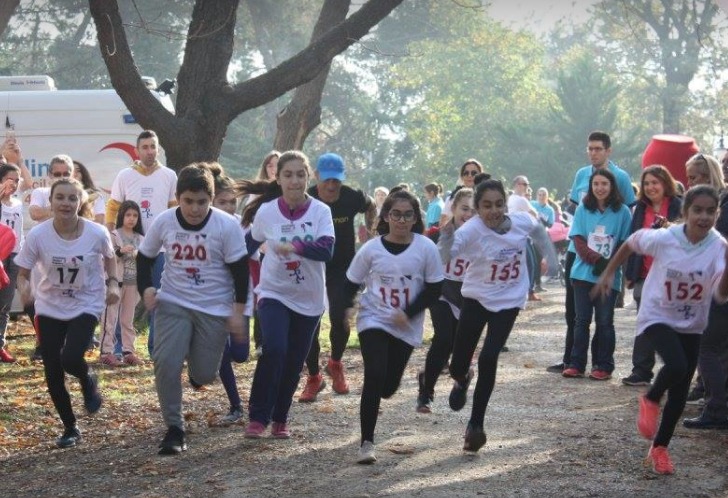
A few years ago, we tried to describe the emotions in the camps and children’s experiences of being friends with diabetes in a documentary film called “My Friend Diabet”. The aim of this documentary is better understanding of diabetic children by society, teachers and health care. One of the main actors of the documentary is an Endocrinology Professor Oğuzhan Deyneli who also has Type 1 diabetes. The documentary describes his and children’s lives together and ends with his inspirational words for diabetic children and youths: “If we take care of our diabetes as required, we can lead a normal and successful life”.
It is possible to be friends with diabetes!
When a child is diabetic, the most important thing is to left behind all worries as soon as possible and organize the life by accepting and fulfilling the needs of diabetes treatment. We can define this view as being friends with diabetes. Actually, it might sound like a romantic word. In fact, this basically describes how to be at peace with diabetes in the treatment of this disease, not to see diabetes as a constant anxiety, be careful about friends’ and own diabetes. Dr. Oğuzhan Deyneli who had type 1 diabetes during high school and now works as an Adult Diabetes Specialist at Koç University Hospital puts into words the important place of being “friend with diabetes” in his own life: “My first encounter with diabetes happened when I was 15 years old. It was a new secretive thing for my family and me. There were not a lot of supporters then who would give information about diabetes in the hospital. When I first get insulin shots, I felt better, because I replaced the missing hormones in my body and balanced my sugar. The most important step we actually try to take while treating diabetes, is to become friends with our diabetes and make it a part of our life.”
Professor Dr. Şükrü Hatun
Koç University Faculty of Medicine
Department of Pediatric Endocrinology and Diabetes
& Head of Diabetic Children’s Foundation


